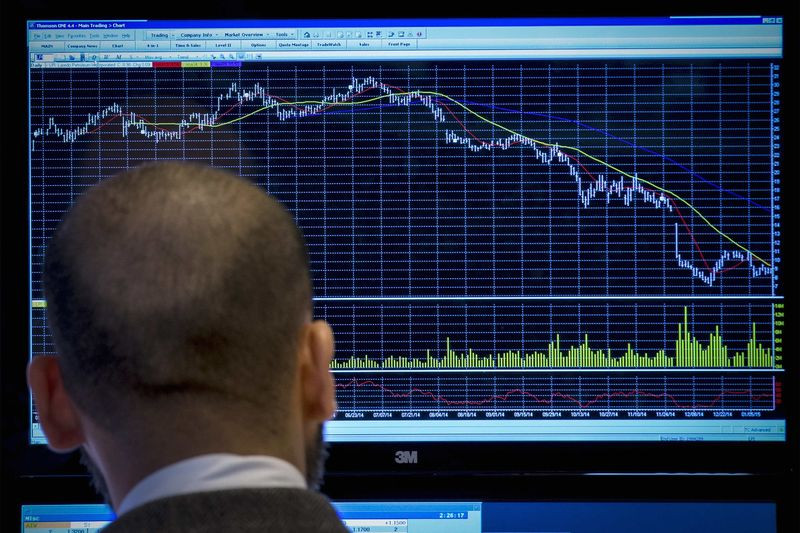
Today, there is no general dynamics on the stock markets of the Asia-Pacific region. Indices showed mixed reaction to the news and were moving in opposite directions. Some indices rapidly fell against the background of a surge in the number of people infected with the coronavirus. Thus, Australia's main stock index plunged by more than 1% and it may drop even deeper.
Signals that the coronavirus pandemic may return were ignored by markets for a long period of time. However, now, the situation has become much worse. It forced market participants to react. The crisis is growing every day, and we should not wait until the situation gets better. Moreover, according to the US government, the bottom has not been reached yet.
At the moment, the most alarming epidemiological situation is observed in the United States. There, a daily increase in the number of virus cases is breaking all records. However, the Australian authorities have also reported on a significant increase in the number of infected people on their territory, in particular in the largest city of the state – Melbourne. At the beginning of July, such states as Victoria and Melbourne again introduced the self-isolation regime, but almost in vain. The number of confirmed cases is still rapidly growing.
Investors' sentiment is also negatively affected by disagreements concerning the US stimulus measures. The two parties are arguing and cannot agree on the amount of the financial support that is urgently needed to revive the country's economy after the crisis associated with the coronavirus pandemic and to combat the spread of COVID-19.
According to the latest data, the Republican party put forward a proposal for $1 trillion aid, which the Democrats considered to be too small. They, in turn, intend to promote their own bill, developed and submitted to the government in May this year. It contains the stimulus package worth $3.4 trillion.
Uncertainty on stock markets will continue rising until both parties come to an agreement. However, it seems that this dispute will not be resolved quickly.
Meanwhile, the European leaders managed to reach a deal on the issue of the Economic Recovery Fund. It was hotly discussed for a long period of time. The EU leaders decided to allocate 750 billion euros. In addition, the EU budget for the next seven years was finally adopted, although there also were quite a lot of disagreements about it.
Thus, amid the news, Japan's Nikkei 225 index showed a 0.5% decline.
China's Shanghai Composite index, on the contrary, went up by more than 0.7%. The Hong Kong Hang Seng index fell by 0.4%.
South Korea's Kospi index remained unchanged.
Australia's S&P/ASX 200 index suffered a setback and declined sharply by 1.4%. Analysts suppose that it will continue falling.
The US stock indices also showed mixed dynamic. Thus, the Dow Jones and S&P500 indicators significantly advanced, while their counterpart Nasdaq Composite marked a negative correction.
The Dow Jones Industrial Average increased by 0.6%, or 159.53 points, which allowed it to hit the level of 26,840.4 points.
The Standard & Poor's 500 index moved up by 0.17%, or 5.46 points to the level of 3,257.3 points.
The Nasdaq Composite index dropped by 0.81%, or 86.73 points, which sent it to the area of 10,680.36 points.
Securities of companies from the energy and finance sectors were in the greatest demand among market participants.
Statistical data on activity of most companies is extremely disappointing. The crisis has seriously affected their performance. However, the preliminary forecasts were much worse than the final figures, which slightly encouraged investors.
Now, investors are focused on the stimulus measures that Washington has promised to take by the end of this month. Despite uncertainty in this issue, there are positive factors such as early release of a vaccine against the coronavirus infection, which keeps the market from a further fall.
Moreover, the business activity in June, reached a new record level. The rise was mainly caused by the lifting of restrictive measures. But today it is clear that these measures will be reimposed.
European stock markets began the day in a quite bad mood. This will definitely affect the indicators in the near future. Weak quarterly reports on the European companies became the main reason for the negative trend.
Germany's DAX index opened with a rise of 0.5%. France's CAC 40 index increased by 1%. The UK FTSE index was up by 0.6%.
 English
English 
 Русский
Русский Bahasa Indonesia
Bahasa Indonesia Bahasa Malay
Bahasa Malay ไทย
ไทย Español
Español Deutsch
Deutsch Български
Български Français
Français Tiếng Việt
Tiếng Việt 中文
中文 বাংলা
বাংলা हिन्दी
हिन्दी Čeština
Čeština Українська
Українська Română
Română

